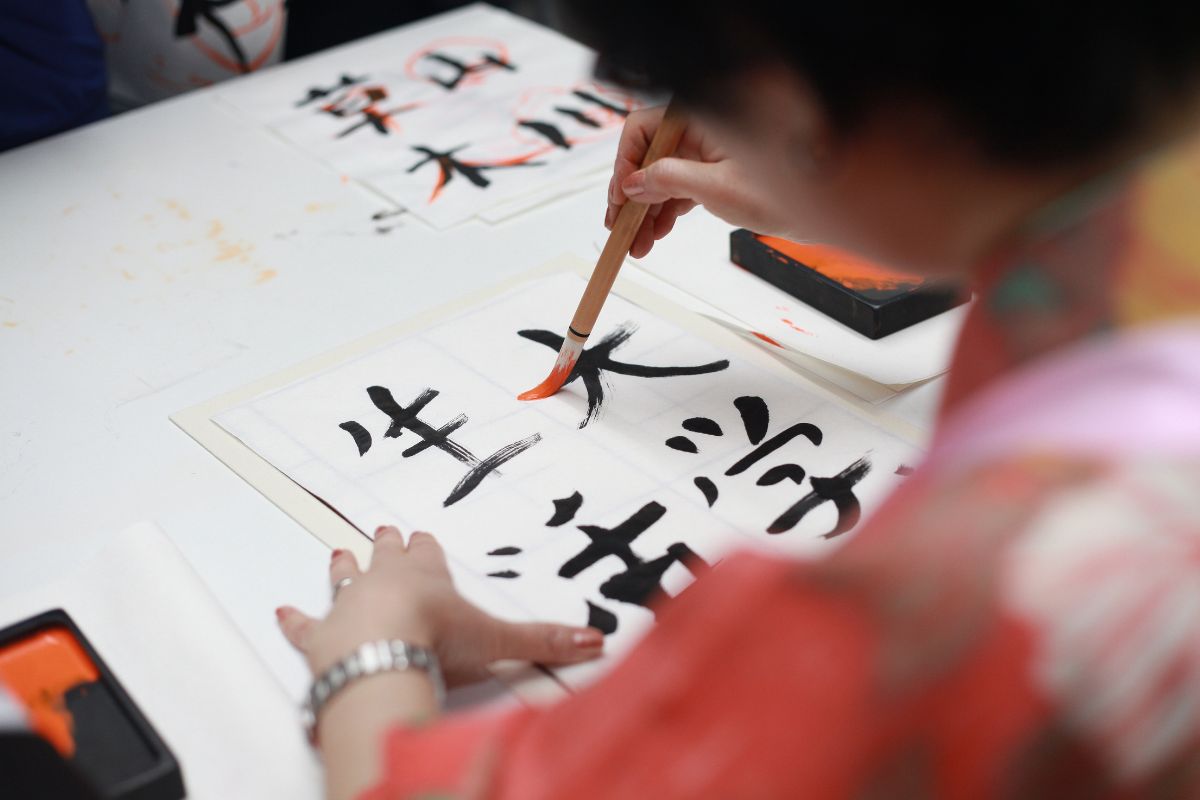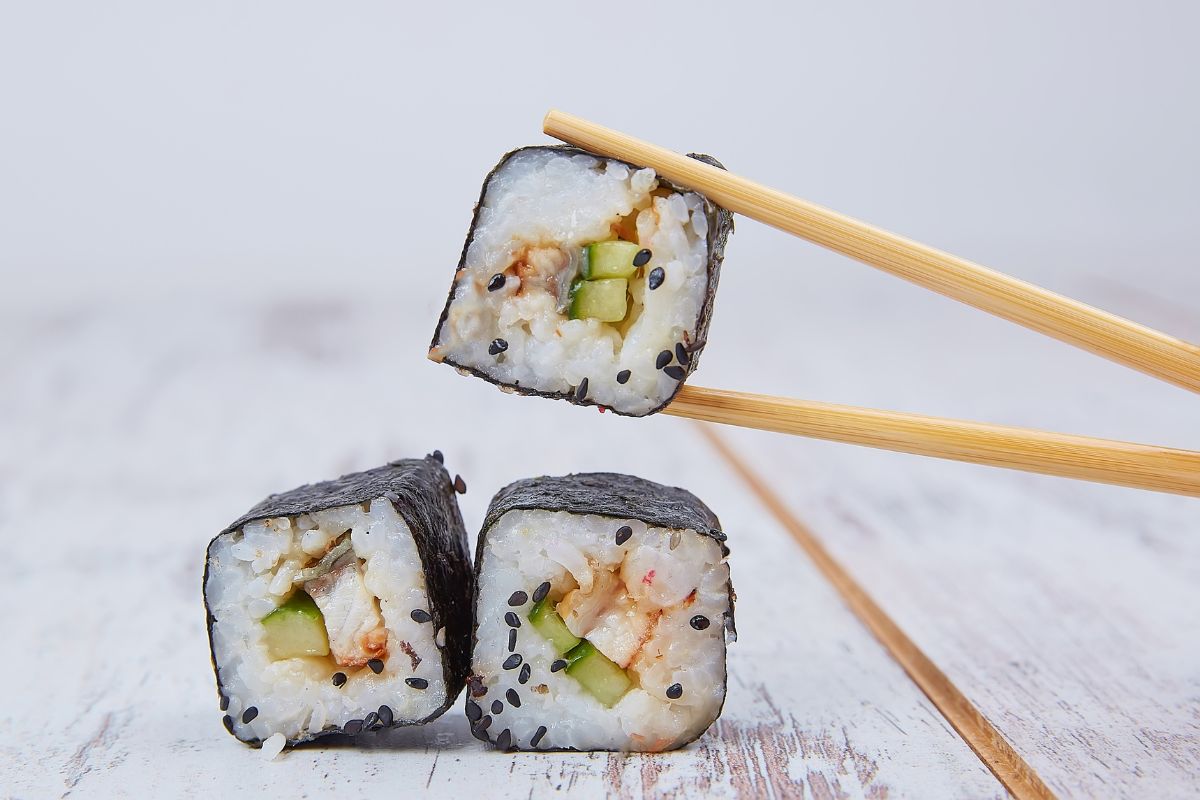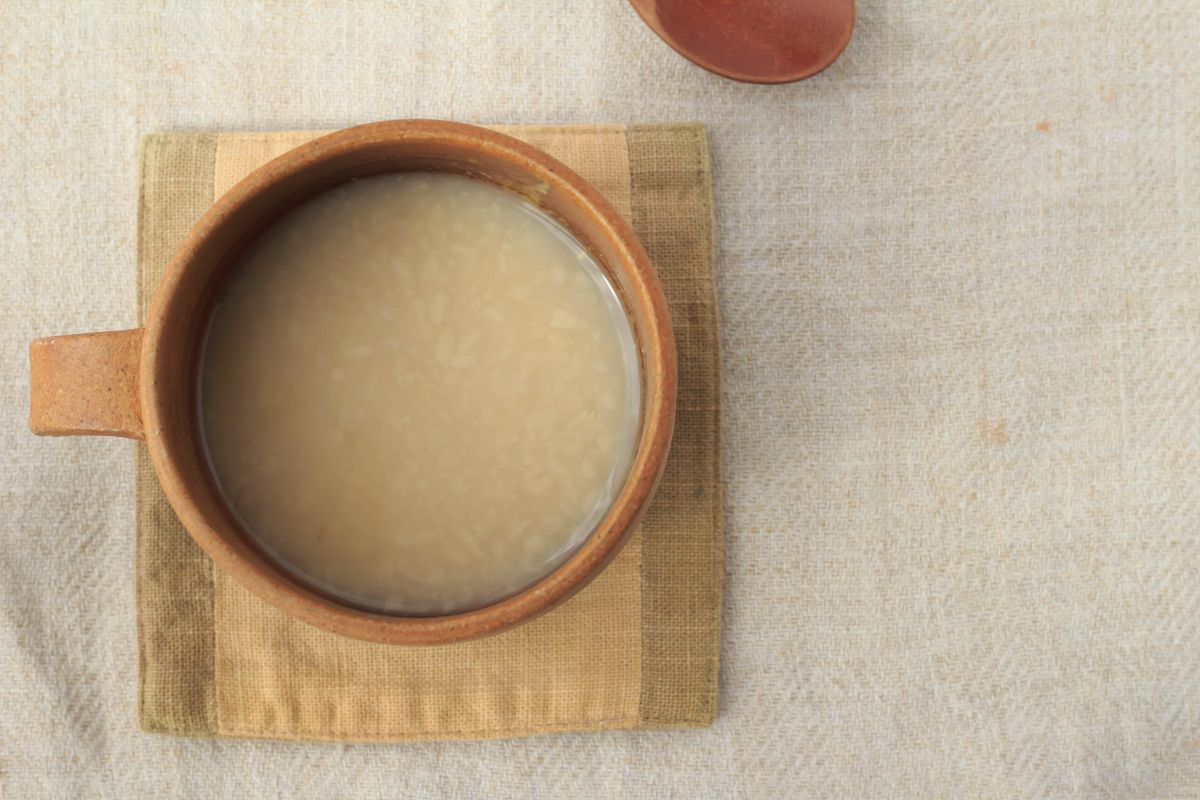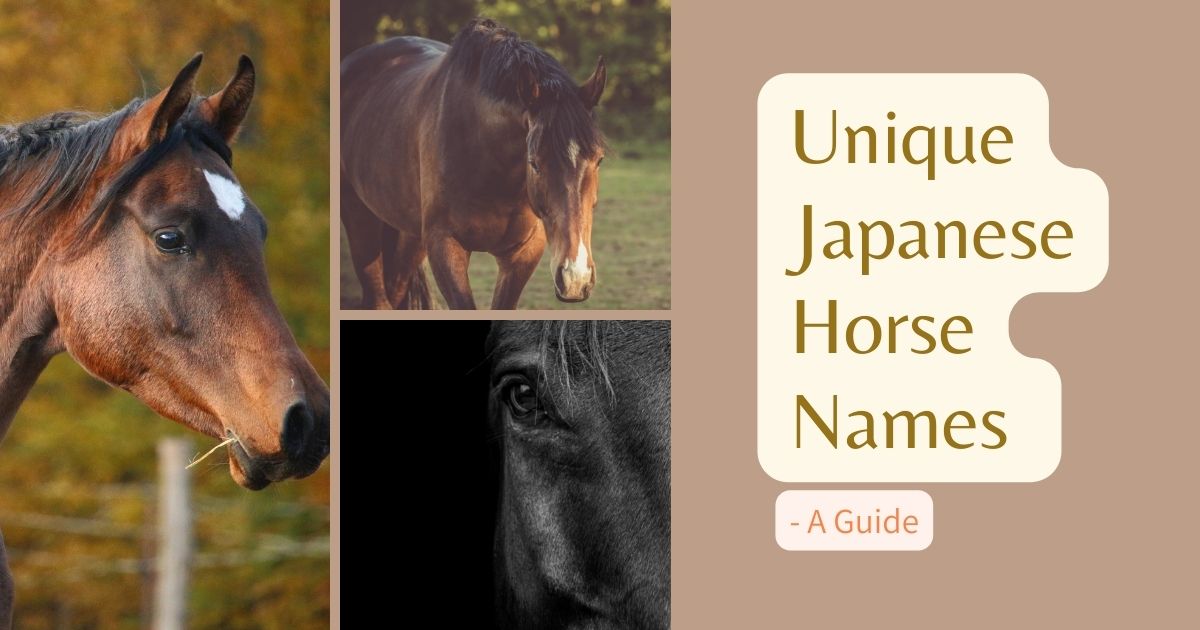Horse in Japanese
Uma is the translation of a horse in Japanese. There are numerous Japanese horse names available. The memorable and catchy Japanese horse names are ideal for your equine companion.
Japanese names are simple to pronounce and distinctive for your canine companions. Japanese breeds, including the Dosanka, Kiso, Misaki, Miyako, Namo, and Nokara, are popular worldwide. This article has a list of Japanese horse names and their English translations.

Naming Your Japanese Horse
If you wish to compare your breed with one originating in Japan, naming your Japanese horse is a simple task. Some people want Japanese names for their horses. Although the variety of names might have a limitation, the following suggestions should make it easier for you to select the ideal moniker for your horse.
Origin of Breed
The breed’s history is an essential component in the decision-making process that leads to the naming of the breed. If you own a Japanese horse, it is only appropriate to give it a name of Japanese origin. The following are some common horse breeds found in Japan.
- Yonaguni
- Taishu
- Takaro
- Noma
- Miyako
- Misaki
- Kiso
- Dosanko
Anime Names
The majority of Japanese names originate from characters in Japanese animation. If you have an interest in anime horse names, then the choice of this Japanese name is the best option. You must remember to prioritize your selection.
The cuisine, seafood, locations, beverages, and customs of Japan can all inspire naming horses from Japan.
Famous Japanese Horses
There is no other way to demonstrate your dominance than by giving your horse the name of a well-known horse from Japan. The following list contains the names of Japanese horses with the nation’s highest equine accolade, “Japanese Horse of the Year.”
These names for horses exude a sense of power and admiration. If you give your horse a name from this list, you’ll be able to brag that it has the name of the most well-known horse ever to come out of Japan – or any other country in the world, for that matter.
- Admire Moon
- Asaka O
- Air Groove
- Almond Eye
- Buena Vista
- Biwa Hayahide
- Deep Impact
- Green Grass
- Gentildonna
- Hoyo Boy
- Inari One
- Jungle Pocket
- Kaburaya O
- Matsukaze
- Mr. C.B.
- Mihono Bourbon
- Mayano Top Gun
- Oguri Cap
- Ryu Forel
- Sakura Star O
- Symboli Kris S
- Sakura Laurel
- Takeshiba O
- Tamamo Cross
- Tokai Teio
A List of General Japanese Horse Names
The following is a list of the numerous names from Japanese culture that you might want to consider for your horse:
- Akira – Clear and bright dawn
- Akemi – The dawn’s beauty
- Arata – Fresh
- Ageru – Raise
- Doki Doki – Excited
- Haru – Spring born
- Kaoru – Fragrance
- Kauma – Coal
- Kich – Good luck
- Katashi – Firmness
- Kentaro – A big boy
- Kano – The water god
- Yutaka – Affluence
- Tama – Jewel
- Saku – Bloom
- Kioshi – Quiet
- Torio – A bird’s tail
- Osamu – Ruler
- Ryo – Excellent
- Masaaki – Brightness
- Shin – truth
- Shoma – Reaching for the truth
- Yuudai – A great hero
- Tetsip – Thinking clear
- Tatsuo – Dragon man
- Takeo – Warrior
- Takashi – Noble
- Sadao – A decisive man
- Seiichi – Sincere
- Tafu – tough
- Naoko – Honest
- Bessuto – Best
- Yogi – yoga practice
- Taiki – Shine
- Fujita – Field
- Hana – Flower
- Botan – Peony
- Arata – Fresh
- Takiyo – The great light
- Akemi – The dawn’s beauty
- Hiroki – The timber trees
- Teruma – True illumination
- Shuji – Governing
- Shig – Luxuriant
- Namiyo – Wave man
- Riku – Land
- Tomo – Twin
- Kenji – An intelligent ruler
- Akira – Clear and bright dawn
- Ronin – Wanderer, drifter
- Kyoda – Bang
- Nikko – Sunshine
- Sin’inchi – Faithful
- Amida – The name of buddha
- Tozen – The deserving one
- Jin – Placid
- Minori – Village made of beautiful fields
- Haruki – The shining sun
- Kaiyo – ocean
- Hikaru – The shining light
- Hoshi – Star
- Taigen – With great ambition
- Kisho – Mindful
- Hayai – Fast
- Joben – Cleanliness
- Emi – Blessing
- Taro – The eldest son
- Kaori – Strong
- Hiroyuki – Happiness
- Yori – Dependence
- Taishiro – Ambitious
- Kazuhiko – The harmonious prince
- Yoshi – Better, Best
- Tsutomu – Worker
- Yuji – Courageous
- Yoichi – Masculine
- Hikaru – Radiance
- Tenchi – Heaven and earth
- Monterio – The big man
- Taiyo – Sun
- Tetsuya – A clear evening
- Koshiro – Ambitious
- Shouta – Big flying
- Mithi – Pathway
- Takai – A high well
- Kishi – Seashore
- Michiya – wisdom
- Yoshito – A lucky man
- Kitaro – A happy boy
- Kaito – Ocean flying
- Ryuu – Dragon
- Genki – The lively one
- Yoshimitsu – The light of happiness
- Kenichi – Strong or healthy
- Masashi – Correct or official
- Ringo – Peacefulness
- Kin – Golden
- Nobu – Faith
- Yukio – Snow
- Masuyo – World, benefit
- Rana – Runner
- Doki Doki – Excited
- Hiroshi – Generous
- Kuru – Black
- Tani – Valley
- Toyo – Plentiful
- Ezume – Pure water
- Yuki – Happiness, snow
- Kiyo – Purity
Female Japanese Horse Names
You can easily see each name’s meaning when you look at the list of female Japanese names for your horse below. You can then match the meanings with the great attributes that your horse possesses. There is something immensely precious about having a reason behind the name that you must give something.
Japan has a long tradition of giving female horses some of the world’s most sophisticated and exquisite names. You can select a meaning symbolic of love, hope, or faith, as well as one symbolic of a cherry blossom tree or lily bloom.
- Akasuki – Bright helper
- Amaya – Night rain
- Arisu – Noble
- Ayaka – Colorful flower
- Aiya – Beautiful silk
- Akiko – Autumn
- Asa – Born in the morning
- Aika – Love song
- Ayano – Colorful woven silk
- Au – Meeting
- Akane – Brilliant red
- Amaterasu – Sun goddess
- Asami – Morning beauty
- Anka – Color of dawn
- Ayako – Scholarly
- Aimi – Love, beauty
- Annaisha – Helpful
- Asuka – Tomorrow
- Ami – Friend
- Azumi – Safe home
- Ayumi – Stroll
- Ayame – Iris
- Shiori – Guide
- Hanan – Flower child
- Noriko – Doctrine
- Etsuko – Joyful
- Sachiko – Bliss
- Nozomi – Hope
- Yasuko – Peaceful
- Hideko – Splendid
- Ran – Water lily
- Yubi – Graceful
- Haneen – Flower child
- Taka – Honorable
- Namiko – Wave
- Wakumi – Spring water
- Rieko – Blessing
- Ami – Friend
- Sachio – Happy
- Gin – Silver
- Ryoko – Excellent
- Miyoko – Beautiful generations
- Midori – Green
- Kurva – Mulberry tree
- Hiro – Broad
- Chitose – Thousand years
- Junko – Pure
- Jin – Tender
- Yayoi – March
- Yumako – Bow
- Kaiya – Forgiveness
- Misaki – Beauty bloom
- Aki – Bright
- Nani – Beautiful
- Mariko – Truth
- Seijun – Pure
- Yoshie – Good bay
- Etsu – Delight
- Mikia – Flower stem
- Sakae – Prosperous
- Sumi – Clear
- Mihoko – Beautiful
- Mako – Truth, grateful
- Maki – True record
- Iku – Nourishing
- Saeko – Serene
- Yukako – Excellent
- Hoshi – Star
- Tanaka – Dweller
- Shina – Virtue, good
- Ryu – Lofty
- Misumi – Pure beauty
- Tame – Unselfish
- Usagi – Moon
- Madoka – Tranquil
- Hisa – Long Lasting
- Kazashi – Hair ornament
- Tamako – Precious stone
- Setsuko – Temperate
- Tsuna – Bond
- Haya – Light, quick
- Kojika – Fawn
- Sorano – Sky
- Tomoni – Togetherness, unity
- Kuni – Country born
- Kazuko – Harmonious
- Roku – Emolument
- Nori – Doctrine
- Reiko – Gratitude
- Katsumi – Victorious beauty
- Hideyo – Superior generations
- Sato – Sugar
- Nyoko – Gem, treasure
- Komako – Term of endearment
- Chiharu – One thousand springs
- Ai – Love
- Shiho – Original intention
- Rai – Trust
- Yoshi – Good
- Hotaru – Lightning bug, firefly
- Kimiko – Dear child
- Takane – Mountain peak
- Haruki – Springtime tree
- Ito – Thread
- Mayumi – True bow
- Hisano – Long plain
- Maria – Sea of bitterness
- Sakura – Cherry blossoms
- Miyo – Beautiful generation
- Sora – Sky
- Eri – Blessed prize
- Chieko – Thousand blessings
- Rini – Little bunny
- Naoki – Honest tree
- Toyo – Plentiful
- Yoko – Positive
- Hayami – Rare and unusual beauty
- Seki – Wonderful
- Maimi – Smiling with truth
- Mikazuki – Moon of third night
- Yuri – Lily
- Suki – Beloved
- Tomi – Rich, wealthy
- Sakiya – Growing cherry blossom
- Annya – Peace
- Yumena – Famous
- Miki – Beautiful Tree
- Chikako – Wisdom
- Shino – Bamboo stalk
- Fumiko – Treasured beauty
- Yo – Positive
- Kaiyo – Forgiveness
- Tomo – Intelligent
- Hiromi – Widespread beauty
- Rikona – Intelligence
- Umi – Ocean
- Morina – Forest town
- Kibo – Hope
- Shizu – Silent
- Tadame – Seeds of beauty
- Michi – Righteous
- Nari – Thunder
- Kohana – Little flower
- Erity – Special
- Chiasa – One thousand mornings
- Takara – Treasure
- Kotone – Harp sound
- Mana – Truth
- Kei – Rapture, reverence
- Yumi – Beauty
Male Japanese Horse Names
It can be difficult to find a name suitable for a male horse. Still, once you know your horse’s character, you’ll be able to select a name that is appropriate for It! You may choose the perfect name for your horse by combining the meaning of the name with the attributes that your horse possesses.
It is easy to notice how distinctive Japanese names are when considering Japanese horse breeds, such as Nokara, Misaki, Kiso, Namo, and Dosanka. Have a look at the following list to discover the perfect name for your male horse:
- Hayai – Fast
- Kisho – Mindful
- Taigen – Great ambition
- Hoshi – Star
- Hikaru – Shining light
- Kaiyo – Ocean
- Haruki – Shining sun
- Minori – Village of beautiful fields
- Jin – Placid
- Kazuhiko – Harmonious prince
- Taishiro – Ambitious
- Yori – Dependence
- Hiroyuki – Widespread happiness
- Kaori – Strong
- Taro – Eldest son
- Emi – Blessing
- Joben – Cleanliness
- Yutaka – Affluence
- Saku – Bloom
- Tama – Jewel
- Masahiro – Justice
- Kioshi – Quiet
- Kauma – Coal
- Osamu – Ruler
- Torio – Tail of a bird
- Ryo – Excellent
- Kaoru – Fragrance
- Tetsip – Clear thinking
- Yuudai – Great hero
- Ageru – Raise
- Shoma – Reaching for truth
- Ryuji – Dragon man
- Akemi – Beauty of the dawn
- Takiyo – Great light
- Arata – Fresh
- Kentaro – Big boy
- Botan – Peony
- Shin – Truth
- Masaaki – Brightness
- Naoko – Honest
- Tafu – Tough
- Seiichi – Sincere
- Sadao – Decisive man
- Takashi – Noble
- Takeo – Warrior
- Tatsuo – Dragon man
- Hana – Flower
- Fujita – Field
- Katashi – Firmness
- Taiki – Shine
- Nobuyuki – Faithful happiness
- Haru – Spring born
- Yogi – Yoga practice
- Kano – Water god
- Kichi – Good luck
- Besuto – Best
- Tozen – Deserving one
- Amida – Name of buddha
- Sin’ichi – Faithful
- Nikko – Sunshine
- Kyoda – Bang
- Ronin – Drifter, wanderer
- Akira – Bright and clear dawn
- Kenji – Intelligent ruler
- Tomo – Twin
- Riku – Land
- Namiyo – Wave man
- Shig – Luxuriant
- Shuji – Governing
- Teruma – True illumination
- Hiroki – Timber trees
- Akihiko – Shining prince
- Hinata – Sunflower
- Masayuki – Happiness
- Raio – Lion
- Yoshifumi – Good writings
- Dair – Great
- Yasashiku – Gentle
- Manzo – Strong
- Shamon – Buddhist monk
- Kaoru – Fragrance
- Hashi – Chopsticks
- Isao – Honor, merit
- Nen – Deep hope
- Mitsuo – Shine, light
- Yoshikazu – Good and harmonious
- Katari – Firm
- Rei – Law, ruler
- Yoshinori – Righteous principles
- Kono – Dexterity and skill
- Hiroki – Strength, abundant, joy
- Teru – True illumination
- Kanaye – Zealous one
- Akhiro – Brightness
- Ken – Healthy, strong
- Fudo – God of fire and wisdom
- Uta – Melody, song
- Sora – Sky
- Mamoru – Earth
- Daiki – Glory
- Hisoka – Reserved
- Kaede – Maple
- Yasuo – Peaceful one
- Toshi – Alert
- Hajime – Beginning
- Akihiro – Bright scholar
- Izanagi – Inviting male
- Kiyoshi – Quiet
- Kiyo – Purity
- Toyo – Plentiful
- Tani – Valley
- Ezume – Pure water
- Masanori – Principles
- Tora – Tiger
- Ozuru – Stork
- Yuki – Snow, happiness
- Shin’ichi – Faithful
- Kuru – Black
- Hiroshi – Generous
- Doki Doki – Excited
- Haruo – Springtime man
- Rana – Runner
- Masuyo – Benefit, world
- Yukio – Snow
- Nobu – Faith
- Kin – Golden
- Ringo – Peacefulness
- Masashi – Official, correct
- Kenichi – Healthy or strong
- Yoshimitsu – Light of happiness
- Genki – Lively One
- Ryuu – Dragon
- Kaito – Ocean flying
- Kitaro – Happy boy
- Yoshito – Lucky man
- Michiya – Wisdom
- Kishi – Seashore
- Takai – High Well
- Michi – Pathway
- Shouta – Big flying
- Koshiro – Ambitious
- Tetsuya – Clear evening
- Taiyo – Sun
- Monterio – Big Man
- Tenchi – Heaven and earth
- Hikaru – Radiance
- Yoichi – Masculine
- Yuji – Courageous
- Tsutomu – Worker
- Yoshi – Best, Better
Japanese Horse Names Inspired By Local Food
There are moments when eating spawns brilliant thoughts. Peaches, carrots, and biscuits are some of the names we call our horses in the original language. These are some western traditions for naming children and pets; however, in Japanese cuisine, the names are even more exquisite. The list of names presented here is quite impressive.
Udon
Udon is a thick noodle most commonly in use in Japanese cooking. You can either prepare it as soup or as a kake udon. In addition to being memorable, it is an excellent choice for a stallion.
Sushi
Although sushi is a popular dish worldwide, we can trace its roots back to Japan. It is a dish consisting of rice seasoned with salt, vinegar, raw food, and veggies.

Soba
Buckwheat is also called soba in Japanese culture. These are buckwheat-flour-based thin noodles. It is useful in the preparation of udon.
Macha
Macha is a powder from green leaves typically consumed in East Asian countries. However, the same name exists in the Japanese language even though it originated in China.
Ramen
It is a traditional noodle soup from China. Wheat flour and beef are both components of ramen. It has a taste similar to that of soy sauce. The name would be most fitting for a stallion.
Tempura
Your horse’s gender-neutral name is Tempura, by the way. A standard meal typically consists of meat, seafood, and vegetables. The Portuguese were the ones who first brought this cuisine to Nagasaki.
Natto
It is a custom that has deep roots in Japanese culture. Breakfast Natto is from fermented soy products and is served in the morning. The name Natto can be for either male or female horses.
Kombu
It is a type of edible kelp that is native to East Asia. In several other languages, kombu is also called Daisima and Hadai. It belongs to the category of seafood.
Sashimi
Sashimi is another traditional meal served in Japan. It often comprises thinly sliced raw meat or fish. People typically eat it accompanied by soy sauce.
Amazake
Amazake is a traditional sweet drink in Japan. It is from fermented rice. It is a meal that has been around for a long time and is quite popular in Japan.

Manju
The common meal known as manju combines rice powder, flour, buckwheat, kudzu, a filling consisting of boiling beans, and anko. In my opinion, your male horse would be best off if you call it Manju.
Japanese Horse Names from Local Locations
Japan is a nation with a culture and many landmarks that date back thousands of years. The following are some names inspired by cities or other well-known locales.
- Osaka: The city of Osaka is one of the most populous in Japan.
- Fuji: Fuji is from Mount Fuji, a well-known mountain peak in Japan.
- Tokyo: The most populous city in all of Japan is Tokyo.
- Hiroshima: Hiroshima is a city in Japan renowned for its historical significance.
- Kyoto: The Ancient City of Kyoto The city of Kyoto is a renowned historical center in Japan.
- Nara: Historic Nara, Beginning in the Temple City of Nara
- Kobe: The most populous city in Japan is Kobe.
- Oki: Oki is a group of one hundred islands in Japan.
- Sapporo: The name of the fifth largest city in Japan.
- Yoko: Yoko is a neighborhood in the southern part of Tokyo.
- Astuta: Astuta, which derives its name from the Astuta Shrine
- Fukuoka: Castle of Fukuoka and the City’s Ancient Festivals are Must-Sees in Fukuoka
- Ashi: Ashi is the name of the lake that bears its name.
Recap
We can help you find a name for your stallion, pony, or mare that has its roots in Japanese culture. This is regardless of whether you own a Japanese horse or simply wish to give your horse a name with Japanese heritage.
The comprehensive lists provided give you a wide variety of options to select a name for your horse that will highlight its most admirable characteristics.
When selecting the ideal moniker for your equine companion, take your time and do not rush the process. You will want to ensure that your horse is happy with the name you chose for it, regardless of what it is.
